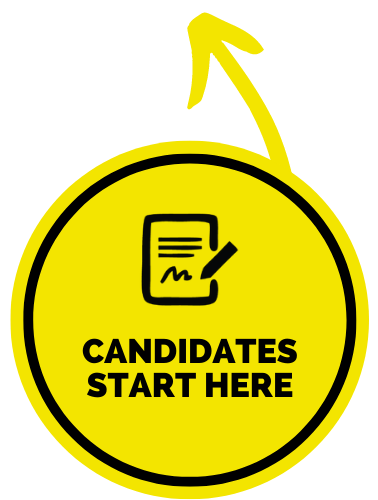
Diversity, Equality, and Inclusion (DEI) are not just buzzwords in today’s corporate landscape but essential components of building a thriving and innovative workplace. Organisations that embrace diverse hiring not only foster a more inclusive culture but also enhance their ability to attract and retain top talent. For an in-depth look in how DEI can benefit your business and how to implement it in your workplace, check out our all-new FREE DEI Guidebook. For now, we’ll delve into DEI best recruitment practices that can help you create a workforce that mirrors your market, set measurable goals, attract diverse applicants, reduce unconscious bias, and focus on workplace accessibility.
Make it a Market Issue
One of the most compelling reasons to prioritise DEI in recruitment is to align your workforce with your market. The more diverse your team is, the better your business can understand and cater to a broader customer base. By reflecting the diversity of your market, your organisation becomes more appealing to both potential employees and customers. In today’s globalised world, businesses benefit immensely from having a workforce that understands and represents the diverse perspectives and needs of their clientele.
Set Measurable Goals
To ensure the success of your DEI initiatives, it’s crucial to set measurable goals. This involves implementing concrete steps that can be monitored and evaluated over time. For example, revising the recruitment process to eliminate biases, reviewing job specifications for inclusive language, and establishing diversity benchmarks are tangible steps toward fostering a more inclusive workplace. Regularly measure the progress of these initiatives and be prepared to adjust strategies based on the outcomes.
Focus on Attracting Diverse Applicants
To attract a diverse pool of applicants, it’s essential to examine and modify the recruitment process. Research indicates that women, in particular, are less likely to apply if they feel they don’t meet every single requirement listed in a job description. To counter this, remove non-essential requirements and communicate the essential ones clearly. Additionally, consider offering flexible holiday leave options to accommodate individuals from different faiths, promoting a workplace that respects and values diverse cultural practices.
Reduce Unconscious Bias
Unconscious bias can significantly impact recruitment processes. Implementing a blind CV review process, where personal information is redacted during the initial stages of assessment, helps mitigate bias. Standardising interview questions ensures that all candidates are evaluated based on the same criteria, reducing the influence of unconscious bias. By actively working to eliminate bias in the hiring process, organisations can make more informed and fair decisions.
Focus on Workplace Accessibility
Creating an inclusive workplace involves making physical and digital spaces accessible to everyone. Ensure your website is user-friendly for individuals with low or no vision by checking contrast, readability, and incorporating alt text for images. Physical accessibility is equally vital; make sure your office is wheelchair accessible with features like ramps, accessible bathrooms, and lifts. Finally, accommodate neurodivergent workers by allowing tools such as noise-cancelling headphones, fidgets, and offering remote or hybrid work options.
Conclusion
Incorporating DEI best practices into recruitment efforts is not just a moral imperative; it’s a strategic move that leads to a more vibrant and innovative work environment. By making DEI a market issue, setting measurable goals, attracting diverse applicants, reducing unconscious bias, and focusing on workplace accessibility, organisations can build a workforce that reflects the rich tapestry of the world around them. In the quest for top talent, embracing DEI is not just the right thing to do—it’s a key driver of success in today’s competitive business landscape.
FAQs on DEI Best Recruitment Practices
Q1: Why should my organisation prioritise Diversity, Equality, and Inclusion (DEI) in recruitment?
A: Prioritising DEI in recruitment aligns your workforce with your market, making your business more appealing to a broader customer base. Diverse teams bring varied perspectives, fostering innovation and enhancing the overall success of your organisation.
Q2: How can we measure the success of our DEI initiatives?
A: Set measurable goals such as revising your recruitment process, eliminating biases, and reviewing job specifications for inclusive language. Regularly assess progress, adjust strategies as needed, and establish diversity benchmarks to track your organisation’s journey towards inclusivity.
Q3: What steps can we take to attract a diverse pool of applicants?
A: To attract diverse applicants, remove non-essential requirements from job descriptions. Studies show that women are more likely to apply if they see a clear understanding of essential requirements. Additionally, consider offering flexible holiday leave options to accommodate individuals from different faiths.
Q4: How can we reduce unconscious bias in our recruitment process?
A: Implement a blind CV review process, where personal information is redacted during initial assessments. Standardise interview questions to ensure all candidates are evaluated based on the same criteria, minimising the impact of unconscious bias in decision-making.
Q5: What steps can we take to make our workplace more accessible?
A: Ensure your website is user-friendly for individuals with low or no vision by checking contrast, readability, and incorporating alt text for images. Physically, make your office wheelchair accessible with features like ramps, accessible bathrooms, and lifts. Accommodate neurodivergent workers by providing tools such as noise-cancelling headphones and fidget toys and consider offering remote or hybrid work options.
Q6: How can DEI best practices benefit our organisation’s recruitment efforts?
A: Embracing DEI is not only a moral imperative but a strategic move. By reflecting the diversity of your market, setting measurable goals, attracting diverse applicants, reducing unconscious bias, and focusing on workplace accessibility, your organisation can build a workforce that contributes to success in today’s competitive business landscape.
About Job Crystal:
Job Crystal is a leading innovator in the field of recruitment AI, dedicated to creating cutting-edge technologies that help speed up the recruitment process. With a strong focus on ethics, transparency, and human collaboration, we strive to develop AI systems that empower individuals and organisations while upholding the highest standards of responsibility.
About the Author

Zane van Rooyen: Certified Product Marketing Manager (CPMM)
Zane is a passionate writer, traveller, and marketer, inspiring others through creativity and experience, both as a product marketing strategist and mentor.









